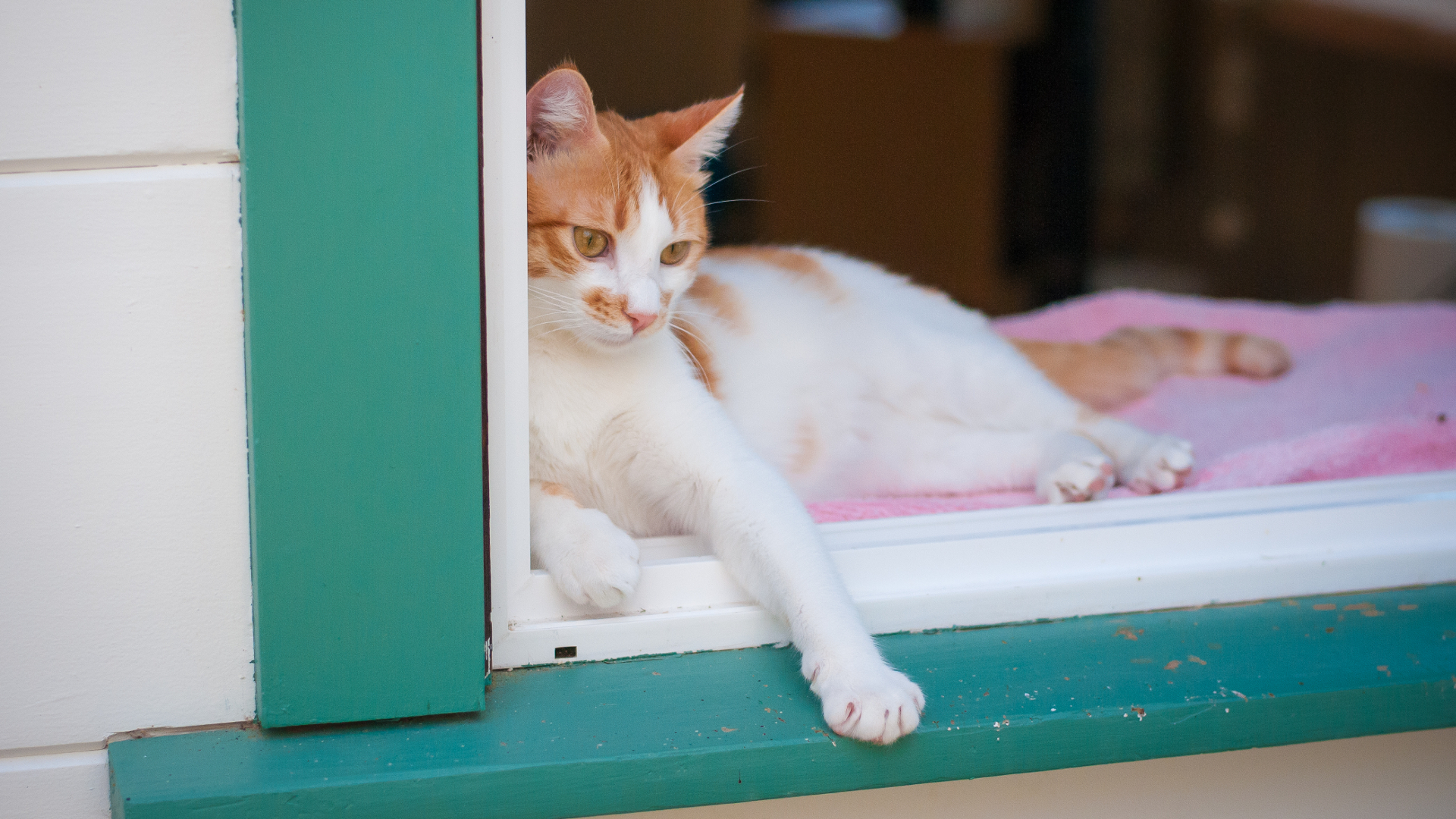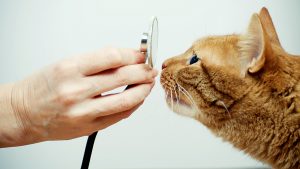Provided by the Cornell Feline Health Center, Cornell University
There are few things more frustrating than having a cat that is suffering chronic bouts of vomiting and diarrhea. Vomiting and diarrhea cause dehydration, and if left untreated, can become a life-threatening situation. Therefore, any cat displaying those signs should be examined by a veterinarian. There are many possible causes of vomiting and diarrhea, but inflammatory bowel disease (IBD) is a common cause of gastrointestinal problems in the cat. Although cats of any age can be affected, middle-aged or older cats are more susceptible to IBD.
IBD describes a group of chronic gastrointestinal disorders. Microscopically the disease is characterized by the infiltration of inflammatory cells into the lining (mucosa) of the digestive tract. The cause of IBD is unknown, but the microscopic changes in the tissues (histopathology) imply that immunologic factors play an important role. The scientific names given to the different forms of the disease are tongue-twisters, but they actually describe the features of the disease. For example, the most common form of IBD in cats is called lymphocytic-plasmacytic enterocolitis. Translated this means that lymphocytes (a type of white blood cell) and plasma cells (cells that produce antibody) are the primary types of inflammatory cells present in the mucosa. Less common forms are called eosinophilic, neutrophilic, and granulomatous, depending upon the predominant inflammatory cell present. Enterocolitis refers to the inflammation of the large and small intestines that occurs in this form of IBD. In cases where inflammation occurs only in the small intestines, it is called enteritis; in cases of only large intestine inflammation, it is called colitis; and gastritis in those cases where inflammation of the stomach predominates.
Diagnosis
To rule out other causes of gastrointestinal disease, your veterinarian will perform diagnostic tests that may include a complete blood cell count, serum biochemistries, serum thyroxine level, tests for feline leukemia virus (FeLV) and feline immunodeficiency virus (FIV), urinalysis, fecal examinations for parasitic and bacterial agents, dietary trials, and abdominal radiographs and/or ultrasound.
The most definitive of the diagnostic tests is the microscopic examination of small pieces of the intestinal lining (mucosal biopsy). Tissue samples can be obtained during abdominal surgery (e.g. laparotomy) or during endoscopic examination. Although both procedures require general anesthesia, the choice of methods depends upon a number of factors, including the availability of equipment and the part of the gastrointestinal tract suspected to be involved.
Treatment
A combination of dietary management and medical therapy will successfully manage IBD in most cats. Because there is no single best treatment, your veterinarian may need to try several different combinations in order to determine the best therapy for your cat.
Dietary Management
Sensitivity to food antigens contributes to the gastrointestinal inflammation in some cats, so a change in diet often provides symptomatic relief. Several balanced commercial diets have been advocated as effective in treating IBD. Homemade diets are an alternative for cats that refuse to eat a commercial diet. Your veterinarian can provide you with an appropriate recipe. Ideally, the diet should contain a single source of protein not normally consumed by the cat. The addition of dietary fiber is beneficial to some cats. It may take several weeks or longer for cats to improve after a diet change, and during this trial feeding period, all other food sources (like table food, and flavored medications and treats) must be eliminated from the diet.
Medical Therapy
Corticosteroids are commonly used to treat cats with IBD. These drugs have potent anti-inflammatory and immunosuppressive properties with relatively few side effects in cats. Additionally, corticosteroids may stimulate the appetite and enhance intestinal sodium and water absorption. Oral prednisone is the corticosteroid used most frequently because of its short duration of action and availability in appropriate tablet sizes. If necessary, injectable corticosteroid therapy can be used in cats that are too difficult to medicate orally or if vomiting and malabsorption is severe.
Antibiotics, such as metronidazole or tylosin, can be helpful when combinations of dietary management and corticosteroid therapy have failed to adequately control the disease. Side effects to metronidazole therapy are uncommon at low dosages, but loss of appetite and vomiting may occur. Excessive salivation is a common reaction of cats after receiving the pill. This is probably a response to the unpleasant taste of the medication. Sulfasalazine is a medication that is often used if large bowel inflammation (colitis) is the predominate problem.
If none of these medications successfully control the signs, more potent immunosuppressive drugs may be necessary, but they necessitate closer monitoring by your veterinarian.
Prognosis
It is rarely possible to cure inflammatory bowel disease, but most cases can be satisfactorily controlled by medication and dietary management. Relapses can occur if the treatment regimen is not followed completely.








